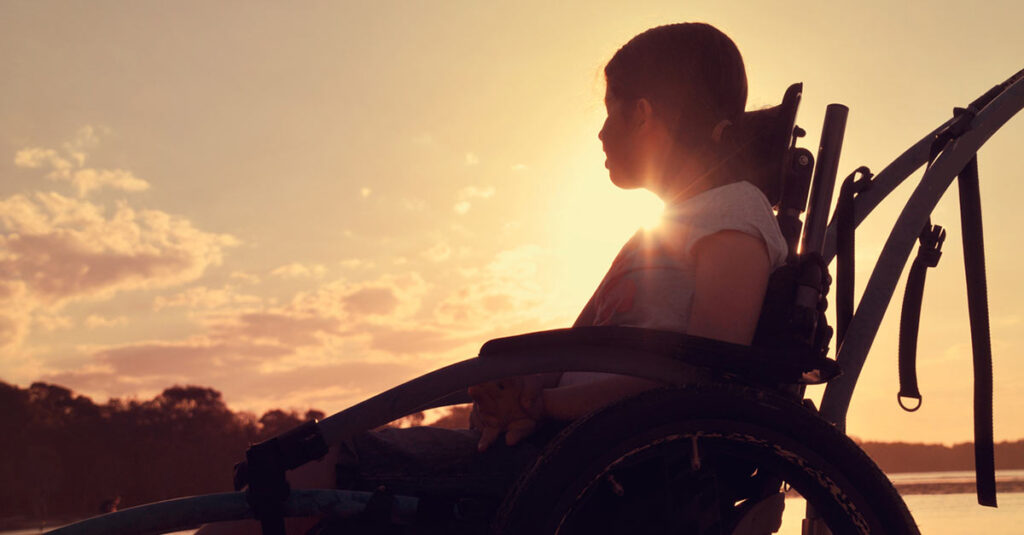Today we have a blog post from the Cerebral Palsy Guide about anxiety and depression within their community of children. While they are talking about those with Cerebral Palsy, we believe there are a lot of similarities between those with anxiety and depression in the disabled communities, we serve as well. As always, our RDHAPs are here to serve. Please find an RDHAP in your area to assist with you oral health care. Find them HERE!

Cerebral Palsy Guide was founded with the goal of educating families about cerebral palsy, raising awareness, and providing support for children, parents, and caregivers affected by the condition. Our easy-to-use website offers simple, straightforward information that provides families with medical and legal solutions. We are devoted to helping parents and children access the tools they need to live a life full of happiness
Did you know that 50% of children who have been diagnosed with cerebral palsy (CP) have at least one mental health disorder?
In fact, 46% of children with CP have mentioned experiencing symptoms of anxiety. Additionally, nearly 70% continually demonstrate behaviors that get in the way of their daily lives, causing further frustration.
For parents who are concerned about their children’s mental health, the Centers for Disease Control and Prevention (CDC) recommends speaking with a healthcare professional when children exhibit signs of mental health issues for at least 14 days within a 30-day period.
This is especially important since mental health conditions can sometimes become debilitating if undiagnosed and untreated.
Actively seeking treatment for mental health issues can help children with CP tremendously, as exploring the tools they need at a young age can help them better manage feelings of anxiety, depression, and stress when they become adults.
Cerebral Palsy and Mental Health Conditions: Why Certain Children Are At Higher Risk
Unfortunately, mental health conditions — such as anxiety and depression — are much more likely to affect people with cerebral palsy than the general population.
One reason for this is that sustaining a brain injury or impairment reduces our ability to positively react and problem-solve through stress and change. This makes it even more difficult to adapt to unexpected circumstances or events.
Mental Health Disorders: What to Watch Out For
Determining whether your child is suffering from mental health issues can be very confusing, especially if you’re not sure what the signs are. While there are countless ways that people can display their stress, there are a few signs that are more common than others.
Mental distress may sometimes be identified by the following signs:
- Acting differently than usual
- Change in appetite and eating habits
- Drastic responses to major life events, such as changing schools, friends moving away, or parents divorcing
- Seeming overly tired and experiencing disruptive sleep
- Social isolation (not communicating very much with family and friends)
In general, it may be a good idea to look for any behavior changes in your child that seem out of character or unusual. You know your child better than anyone else, so trust your instincts and contact a healthcare professional if you think an intervention might be helpful.
Mental Health Resources for Children with CP
Watching your children struggle is difficult for any parent. The good news is that support is available. If you believe your child is battling mental health issues, there are several resources that may be able to help ease some of the pain.
Here are a few mental health resources you can explore:
- Start with your child’s pediatrician. Discuss your concerns with your child’s doctor and see if there are any recommendations you can follow. Your pediatrician may also refer your child to another health care professional who can help.
- Make an appointment with a mental health professional. Talking with a psychologist, therapist, or counselor may help your child express their feelings. Also, these professionals often provide their patients with specific tools and exercises they can practice to better manage their symptoms.
- Contact a national helpline. Organizations such as the Crisis Text Line and the 988 Suicide & Crisis Lifeline may be able to offer you additional information to support your child.
These are just a few options that might help you and your family navigate mental health issues. Depending on your unique situation, there are other resources that may better address your child’s specific needs.
How Cerebral Palsy Guide Can Help
The Cerebral Palsy Guide team has helped many families across the country find the resources and support they need.
We can assist you, too. One free phone call can help you decide which options are right for you.
Contact us today or call (866) 482-2498 to speak with one of our nurses. We are here 24/7 to listen, offer our support, and guide you through this journey.
